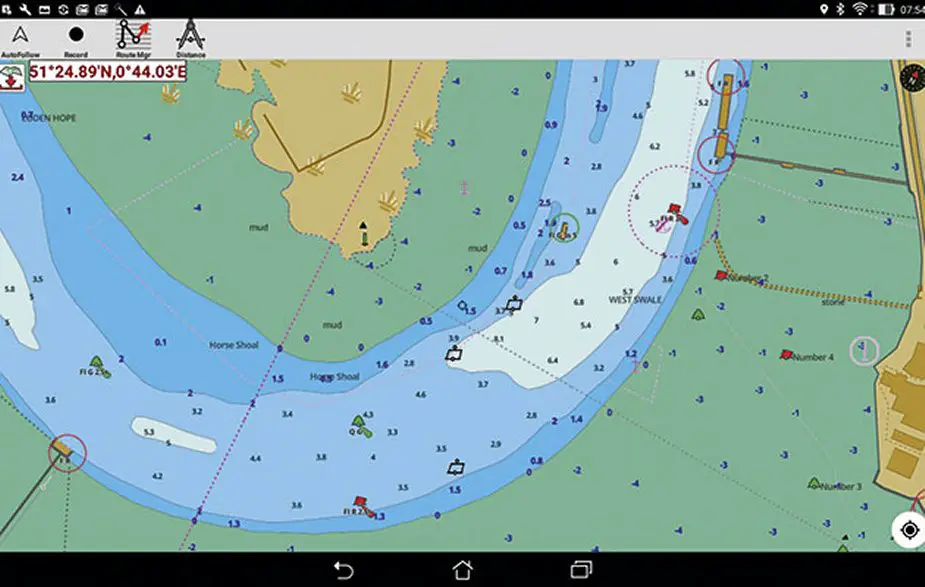Breaking news
New Sprut-N1 precision navigation system created for the Russian Navy.
According to TASS, Sprut-N1 new-generation precision navigation radio system (RNS) has been created for the Russian Navy. It will determine geographic location, speed and altitude with a precision superior to that of GLONASS and GPS. The coordinates are determined by ground stations of the system which transmit coded signals to warships and aircraft. The main advantage against satellite navigation is that the signal of the high-tech system cannot be jammed, the Izvestia daily writes.
 A printscreen of a marine navigation app (Picture source : yachtingworld)
A printscreen of a marine navigation app (Picture source : yachtingworld)
The Defense Ministry told the newspaper the equipment for Sprut-N1 will be delivered to a fleet for test operation in 2019. At the first stage RNS will cover the Russian territory and adjacent waters. Two ground stations will be deployed.
Sprut-N1 is currently the only Russian broadband RNS with ground stations which exceed foreign analogues in precision. It comprises several ground stations to monitor and issue commands to a warship or aircraft, as well as a receiver and computer. The system boasts excellent capabilities in data transmission speed and signal protection. The exact technical parameters are a secret. The construction of two transmitting stations will cost the Navy 190 million rubles, the daily said.
Sprut-N1 will be interfaced with GLONASS to become its ground standby. The RNS will provide adjustments to increase the precision of coordinates. Such integration will upgrade the Russian global navigational satellite system. Sprut-N1 will increase navigational information provision to warships, airplanes and helicopters. Civilian customers will be allowed to use it in future.
The integration of ground and space navigational systems will create in Russia a single protected positioning system. The designers worked to provide complete protection against various disturbances. Research produced new algorithms and technical solutions for signal reception.
Modern satellite navigation systems are vulnerable to electronic warfare. The ground Sprut-N1 station will continue to operate even if the adversary jams the signal in an area. Broadband RNS have to offer single-option navigational provision to warships in condition of active electronic warfare.
A modern warship badly needs a navigation system which cannot be jammed, expert Sergey Batalin said. "It is very important to know your exact position in real time. It helps timely switch to an attacking course or to escape adversary strikes. There are numerous ways to determine the position, but the most exact and rapid one is offered by special navigational complexes which automatically calculate the course. The navigational data are used by numerous systems of a warship, including precision arms aiming," he said.
The Russian armed forces are actively reinforcing the borders. This year Resonans-N mobile radar with artificial intellect elements will be deployed in the Arctic. It can detect cruise missiles and drones at a distance of a thousand kilometers. The technology is specifically important for the Arctic from where the potential adversary can strike at the Urals, Siberia and Central Russia, the Izvestia said.
© Copyright 2019 TASS. All rights reserved. This material may not be published, broadcast, rewritten or redistributed.


























